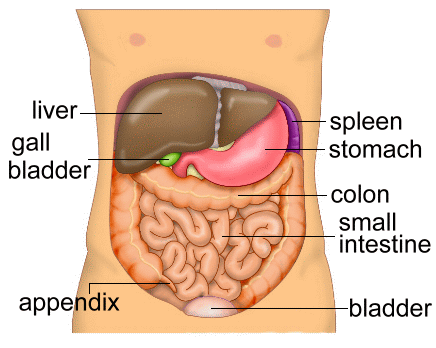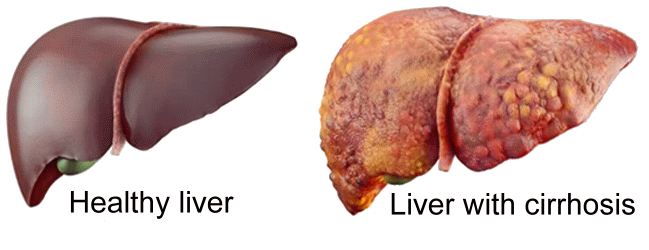  The liver is the largest solid organ in the body. It removes toxins from the body's blood supply, maintains healthy blood sugar levels, regulates blood clotting, and performs hundreds of other vital functions. It's located beneath the rib cage in the right upper abdomen.
The liver is the largest solid organ in the body. It removes toxins from the body's blood supply, maintains healthy blood sugar levels, regulates blood clotting, and performs hundreds of other vital functions. It's located beneath the rib cage in the right upper abdomen.The liver is reddish-brown, and shaped approximately like a wedge, with the small end above the spleen and stomach and the large end above the small intestine. The entire organ is located below the lungs in the right upper abdomen. It weighs about 1.5 kg. The liver is an essential organ that performs over 500 vital functions. These include removing waste products and foreign substances from the bloodstream, regulating blood sugar levels, and creating essential nutrients. Here are some of its most important functions:
The liver filters all of the blood in the body and breaks down poisonous substances, such as alcohol and drugs. Cirrhosis is a condition in which your liver is scarred and permanently damaged, caused by many forms of liver diseases and conditions, such as hepatitis or chronic alcoholism. Scar tissue replaces healthy liver tissue and prevents your liver from working normally. As cirrhosis gets worse, your liver begins to fail. Advanced cirrhosis is life-threatening.  |